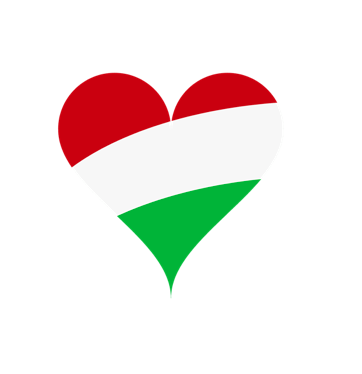
- Hungary was part of the Celtic world, then the Roman Empire. Following the fall of Rome, the Huns settled in the plains of Pannonia and gave their name to Hungary.
- Hungary is one of the oldest countries in Europe. It was founded in 896, before France and Germany became separate entities, and before the unification of Anglo-Saxon kingdoms.
- Around 1000 CE, the Kingdom of Hungary was one of the largest states in Europe, bigger than France. Later, it became of the two “eagle heads” of the Austro-Hungarian Empire.
- The Hungarian language is known as Magyar. It is the direct descendant of the language spoken by the Huns and is therefore not an Indo-European language. It has only two related languages in Europe: Finnish and Estonian.
- The Hungarian alphabet is unique! It has some letters in it which are composed of more than one letter. For example, the English ‘j’ sound from ‘jam’ is written as ‘dzs’ in the Hungarian alphabet, and it is considered one letter. All together Hungarian alphabet has 44 letters.
- The capital of Hungary was almost named Pestbuda… Budapest was born when three cities, Buda, Pest and Óbuda (Old Buda) were united, and at first the founders had different ideas about what they should name the new city.
- World’s largest geothermal cave system is found in Hungary. It is located in the undergrounds of Budapest.
- Hungarian inventions include the noiseless match (János Irinyi), Rubik’s cube (Erno Rubik), and the krypton electric bulb (Imre Bródy).
- Hungary, like Austria, has a long tradition of classical music, although often blended with folkloric elements. Composers Béla Bartók, Zoltán Kodály or Franz Liszt were all Hungarian.
- As of 2007, 13 Hungarians had received a Nobel prize, i.e. more than Japan, China, India, Australia or Spain.
- Hungary has one of the oldest metro railways in the world, dating back to 1896.
Katrin Uurman (EE), leader of the campaign “Month of an EUROPEA Member State”
References:
https://www.eupedia.com/hungary/trivia.shtml
https://eurama.hu/2017/03/08/interesting-facts/
http://www.interestingfunfacts.com/interesting-information-about-hungary.html
http://thefactfile.org/hungary-facts/

